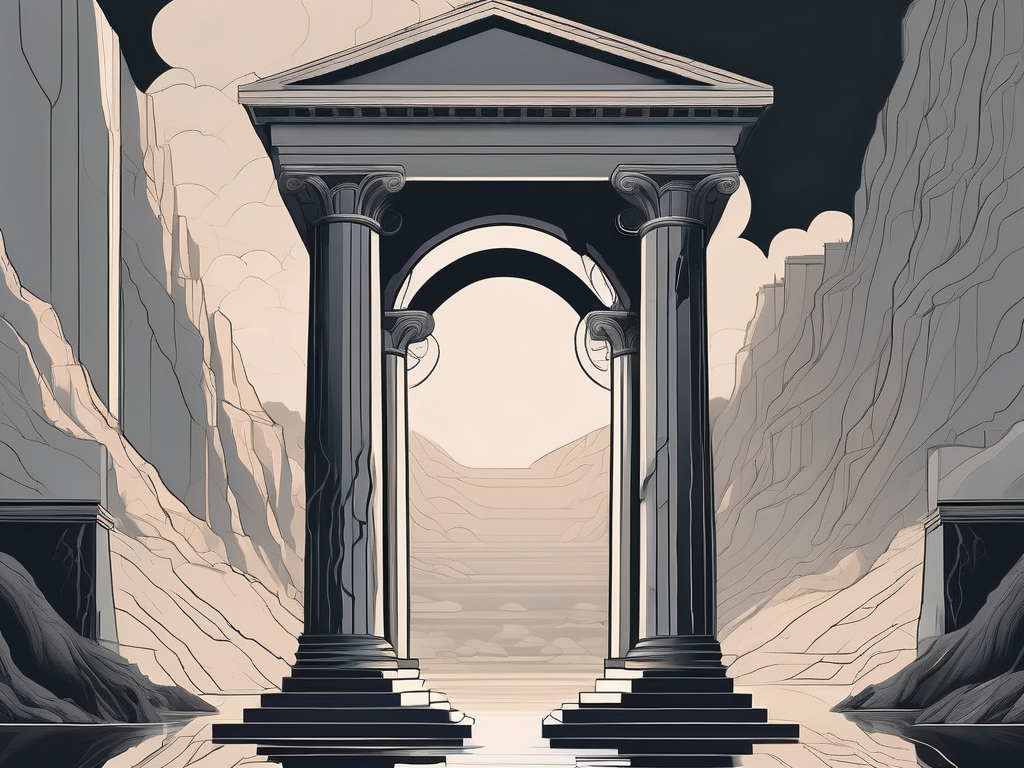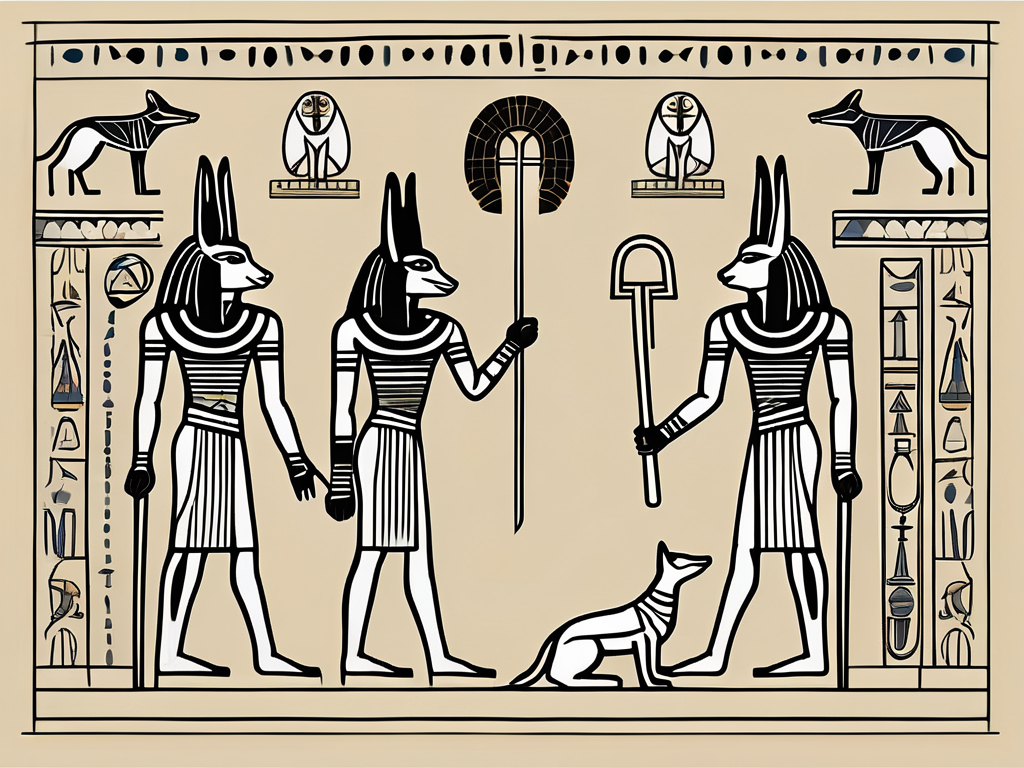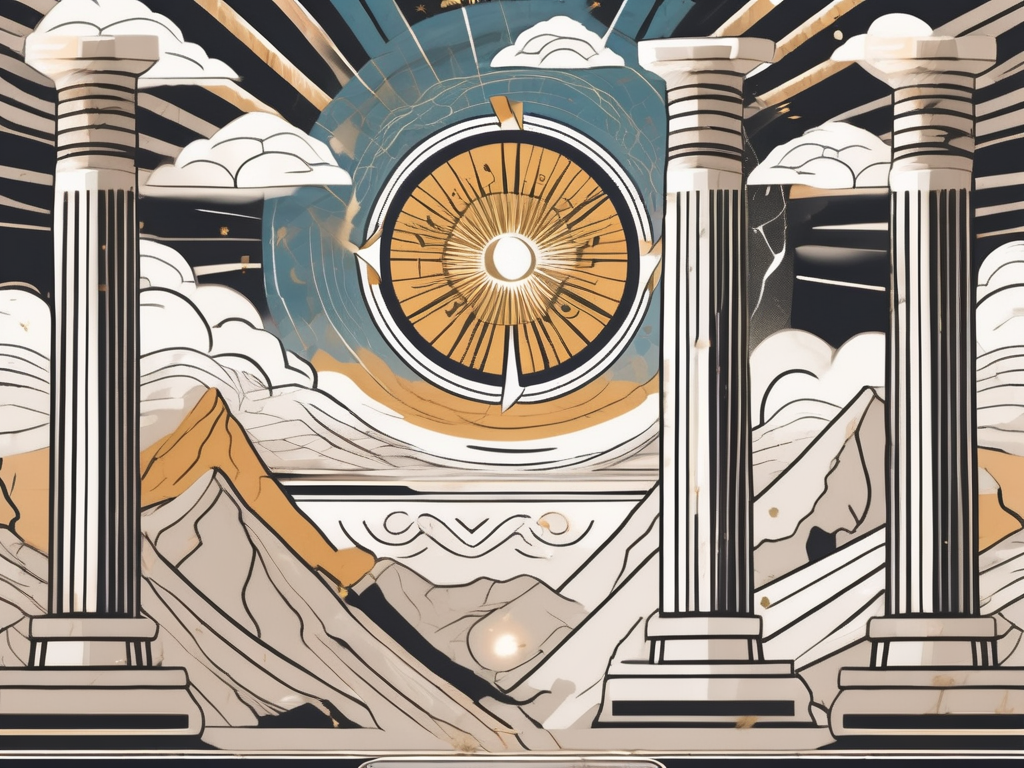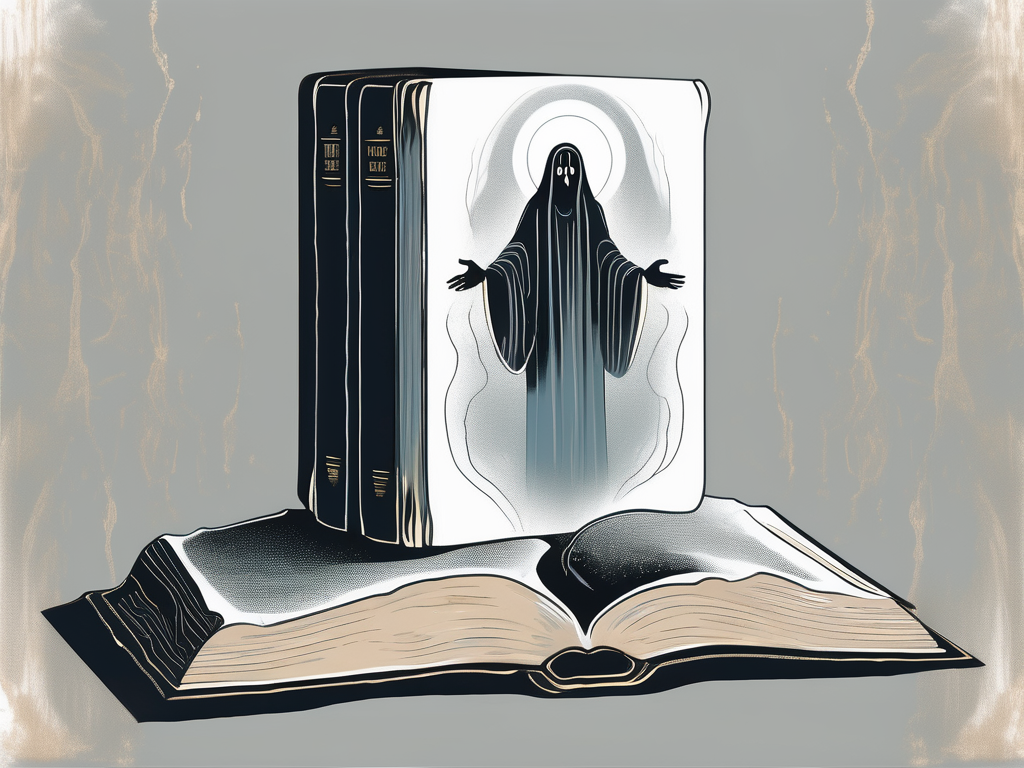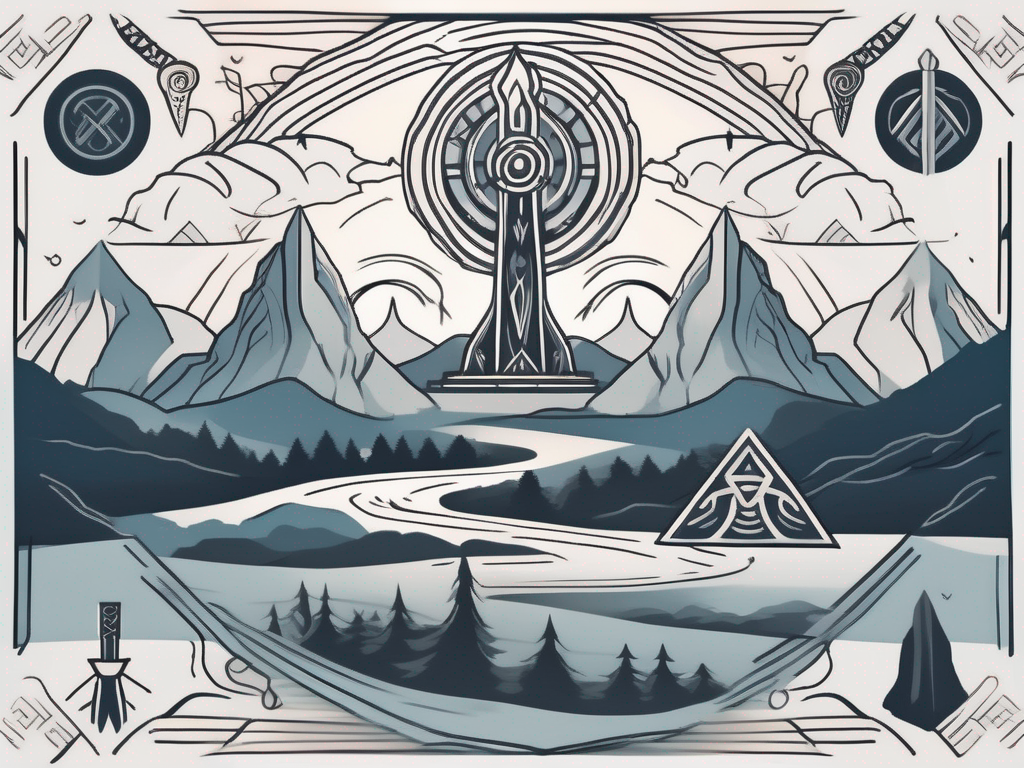Greek mythology is rich with fascinating tales of gods and goddesses, each with their own unique roles and powers. Among them is Hades, the intriguing Greek god of the underworld. In this article, we will delve deep into the mythical realm of Hades and uncover the mysteries surrounding this enigmatic deity.
Understanding Hades: The Greek God of the Underworld
Hades is one of the major gods in Greek mythology, ruling over the realm of the dead. Known as the god of the underworld, he is often portrayed as a stern and somber figure, overseeing the souls of the deceased. But there is more to Hades than meets the eye.
Hades, the eldest son of the Titans Cronus and Rhea, plays a significant role in Greek mythology. After the Titans were overthrown by the Olympian gods, Zeus, Poseidon, and Hades, they drew lots to determine their realms. Zeus became the ruler of the sky and heavens, Poseidon the sea, and Hades was granted dominion over the realm of the dead.
Contrary to popular belief, Hades is not the god of death itself, but rather the god who presides over the realms of the afterlife. This includes the realm of the dead, known as the Underworld, where souls go after they pass away.
As the god of the underworld, Hades holds immense power and authority. He is responsible for deciding the fate of souls and punishing the wicked. While Hades is often portrayed as stern and unyielding, he is not an inherently evil deity.
Hades has the ability to control the flow of souls between the land of the living and the land of the dead. His most recognizable power is his ability to render mortals unconscious, allowing him to transport souls to the Underworld.
In Greek mythology, the gods have complex relationships and interactions with one another. Hades is no exception. He is the brother of Zeus and Poseidon, and together they overthrew the Titans to establish the reign of the Olympian gods.
While Hades primarily resides in the Underworld, he occasionally emerges to interact with other gods. One notable instance is when Hades kidnaps Persephone, the daughter of Demeter, to make her his queen. This act sparks a chain of events that influences the changing of seasons, as Demeter mourns the loss of her daughter during the months Persephone spends in the Underworld.
The relationship between Hades and Persephone is a complex one. While the act of kidnapping may seem cruel, it is important to understand the context. Hades was deeply in love with Persephone and desired her as his queen. He sought the permission of Zeus, their father, before taking her to the Underworld. Persephone, initially frightened and resistant, eventually grows to love Hades and becomes a respected and powerful queen in her own right.
Another interesting aspect of Hades’ character is his fairness and sense of justice. While he punishes the wicked, he also rewards those who have lived virtuous lives. Hades is known to grant special privileges to heroes and individuals who have shown exceptional bravery or kindness during their mortal lives.
It is also worth noting that Hades is not entirely isolated in the Underworld. He has a retinue of loyal subjects, including the three-headed dog Cerberus, who guards the gates of the Underworld, preventing the souls of the dead from escaping.
In conclusion, Hades is a complex and multifaceted god in Greek mythology. While he is often associated with darkness and death, there is much more to his character. As the god of the underworld, he holds immense power and authority, but he also possesses a sense of fairness and justice. His relationships with other gods, particularly his brothers Zeus and Poseidon, and his kidnapping of Persephone, add depth to his story. Hades is a fascinating figure in Greek mythology, deserving of further exploration and understanding.
The Realm of Hades: A Detailed Look
Now that we have a better understanding of Hades himself, let’s take a closer look at his realm, the Underworld, and the elements that make it an intriguing and often feared place.
The Underworld, also known as Hades’ Kingdom, is a vast and intricate realm that stretches far beyond what mortal eyes can comprehend. It is a place of darkness and mystery, where the souls of the deceased find their eternal resting place.
The Underworld: Hades’ Kingdom
At the core of the Underworld lies Tartarus, a deep abyss that serves as a prison for the most wicked souls. It is said that even the gods fear Tartarus, for it is a place of unimaginable torment and suffering. The wicked are condemned to endure eternal punishment, their souls forever trapped in this bottomless pit.
Surrounding Tartarus is the Asphodel Meadows, a vast expanse of land where the souls who led ordinary lives without great heroics or atrocities reside. Here, the souls wander aimlessly, experiencing a dull existence that mirrors the neutrality of their mortal lives. It is a place devoid of joy or suffering, where time seems to stand still.
Finally, we have the Elysium Fields, a paradise reserved for heroes and the virtuous. This idyllic realm is a sanctuary for those who have lived lives of honor and righteousness. Warriors who fought valiantly, poets who captured the essence of beauty in their words, and individuals who dedicated themselves to noble causes find solace and eternal bliss in Elysium. It is a place where their spirits can bask in the glory of their achievements for all eternity.
The River Styx and Charon: The Journey to the Underworld
According to Greek mythology, the journey to the Underworld begins with crossing the treacherous River Styx. This mythical river acts as a boundary between the world of the living and the world of the dead, serving as a gateway to the realm of Hades.
Charon, the ferryman of the Underworld, plays a crucial role in this journey. He stands at the shores of the River Styx, waiting to transport the souls of the deceased to their final destination. Traditionally, the souls must pay Charon a fee to gain passage to the Underworld. This fee is often a coin placed in their mouths or on their eyes, symbolizing their payment for the journey. Those who cannot pay are left to wander the shores as restless spirits, forever denied entry into the realm of Hades.
The Three Judges of the Underworld
Once the souls cross the treacherous River Styx, they face judgment by the three formidable judges of the Underworld: Rhadamanthus, Minos, and Aeacus. These judges, known for their unwavering sense of justice, weigh the souls’ deeds during their lifetime and determine their fates in the afterlife.
Those deemed virtuous and deserving are sent to the Elysium Fields, where they can find eternal peace and happiness. In this paradise, they are surrounded by the company of other noble souls, basking in the rewards of their virtuous lives. On the other hand, those who are wicked and guilty are condemned to Tartarus, where they face the consequences of their malevolent actions for all eternity. The judgments passed by the three judges are impartial and final, ensuring that justice is served in the realm of Hades.
The realm of Hades and the Underworld are shrouded in mystery and intrigue. It is a place where the souls of the deceased find their eternal fate, where the wicked are punished, and the virtuous are rewarded. Exploring the depths of this realm reveals a complex and fascinating world, filled with wonders and horrors beyond mortal comprehension.
Hades and the Concept of Death in Ancient Greece
In ancient Greece, death held a significant place in society and was seen as a natural part of life’s cycle. Hades played a crucial role in shaping the Greeks’ perception and beliefs surrounding death and the afterlife.
The Greek Perception of Death
The ancient Greeks believed in the immortality of the soul and the existence of an afterlife. They saw death as a transition, a doorway to another existence rather than an end. The rituals and practices surrounding death reflected this belief, emphasizing the importance of providing a proper burial for the deceased.
The Role of Hades in Death Rituals
Hades played a vital role in the death rituals of ancient Greece. It was believed that without a proper burial, a soul would be left to wander the Earth as a restless spirit, unable to find peace in the afterlife.
Family members would conduct elaborate funeral rites and ensure that the deceased had a proper burial. They would place coins under the tongue or on the eyes of the deceased to pay Charon for safe passage to the Underworld.
The Afterlife According to Greek Mythology
In Greek mythology, the afterlife was a realm separated from the world of the living. It was the domain of Hades, where souls would reside based on their actions and choices in life.
Upon death, souls would travel to the Underworld, where they would face judgment by the three judges. Here, their deeds would determine their eternal fate – either eternal bliss in Elysium or eternal torment in Tartarus.
Hades’ Influence on Modern Culture and Literature
The myths and legends of ancient Greece continue to captivate and inspire people to this day. Hades, with his dark and intriguing persona, has had a significant impact on modern culture and literature.
Hades in Modern Literature and Film
Hades’ portrayal in modern literature and film often reflects his mythological roots. He is often depicted as a complex character, embodying both darkness and redemption. From Rick Riordan’s “Percy Jackson” series to Disney’s animated film “Hercules,” Hades continues to fascinate audiences with his cunning and complex nature.
The Influence of Hades on Modern Perceptions of the Underworld
Hades’ realm, the Underworld, has become a source of inspiration for many artists, writers, and filmmakers. Its dark and mysterious nature has been woven into various narratives, influencing our modern perceptions of what lies beyond death.
Whether it is the portrayal of the River Styx in literature or the depiction of Hades himself in popular culture, the influence of Hades and the Underworld is undeniably significant.
Hades’ Legacy in Contemporary Mythology
Hades’ influence extends beyond ancient mythology and continues to shape contemporary mythology. His portrayal as a complex and multi-dimensional deity has paved the way for the exploration of other gods and goddesses in popular culture.
As we unravel the mythical realm of Hades and explore the depths of his character, we gain a deeper understanding of the complex tapestry that is Greek mythology.
In conclusion, Hades, the Greek god of the underworld, is a captivating figure within Greek mythology. From his role in the afterlife to his relationships with other gods, Hades remains an intriguing and vital part of Greek mythology, as well as a source of inspiration for countless works of art, literature, and film.
